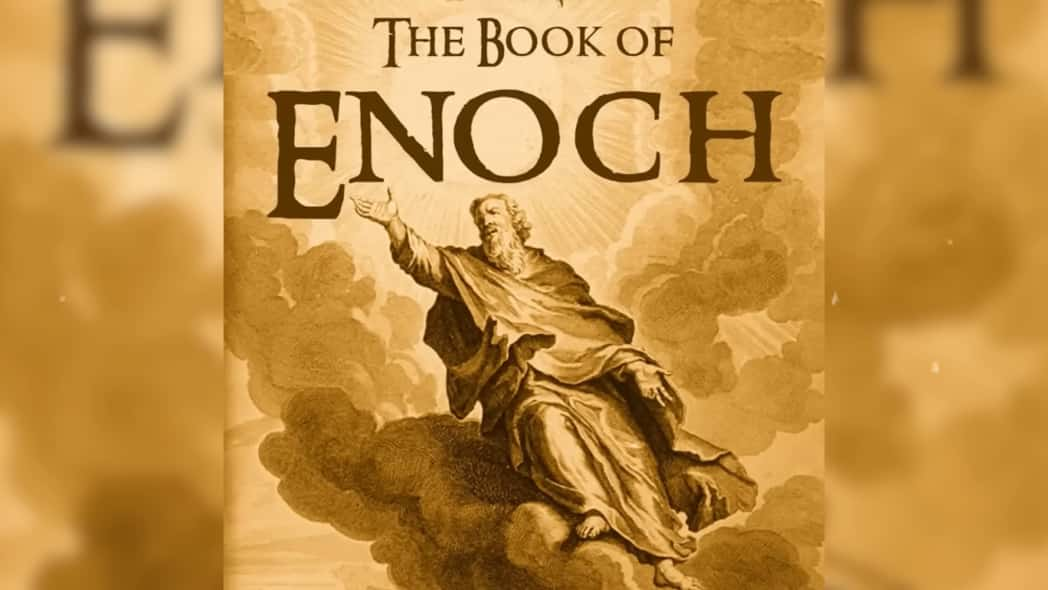The Book of Enoch is an ancient Jewish religious work, ascribed by tradition to Enoch, the great-grandfather of Noah. It is not part of the biblical canon as used by Jews, apart from Beta Israel. Most Christian denominations and traditions may refer to the Book of Enoch but have excluded the text from the canon of the Holy Scriptures.
Doubts Surrounding the Book of Enoch: Searching for Veracity
Religious literature offers an abundance of thought-provoking texts, varying from universally accepted to contentious ones. The Book of Enoch, an ancient Jewish text, stands out among them due to its mystifying content and dubious status. The Christian community harbors mixed feelings about this book, with many expressing a need for care when contemplating its study. This article aims to explore the rationale behind this apprehension related to the Book of Enoch.
Decoding the Content of the Book of Enoch
Regarded as a compilation of Jewish antiquities, the Book of Enoch is associated with Enoch, a biblical figure listed in Genesis 5:18-24. The Book of Enoch, despite its recognition in some early Jewish circles and its preservation over the years, remains outside the canonical scriptures in most Christian traditions. The Book of Enoch’s diverse content seeks to narrate intricate details about angelic beings, cosmic elements, prophecies, and ethical lessons. Some portions of the book echo themes found in canonical biblical texts, while others introduce fresh concepts and storylines.
Cautionary Reasons Connected to the Book of Enoch
- Non-Canonical Status: The Book of Enoch’s non-inclusion in the canonical scriptures is the prime cause for caution. The Holy Spirit’s guidance and the early Christian communities’ discernment were instrumental in the canonization of the books considered authoritative and divinely inspired;
- Lack of Support: Despite the thematic resemblances to canonical scriptures, the Book of Enoch lacks validation from New Testament authors, who often reference or quote Old Testament scriptures;
- Doctrinal Discrepancies: Certain theological concepts in the Book of Enoch do not align with orthodox Christian beliefs. It is essential to scrutinize any non-biblical text and assess its teachings against the consistent message of the Scripture;
- Contextual Understanding: Proper interpretation of the Book of Enoch requires understanding its historical and cultural context, which may not align with the biblical worldview. This is crucial to avoid misconstruing the text;
- Misinterpretation Risk: The intricate symbolism and imagery used in the Book of Enoch could lead to divergent interpretations. This could result in potentially misleading conclusions that clash with orthodox theology;
- Focus on Christ: Central to Scripture is the life and teachings of Jesus Christ. Any text deviating from Christ’s centrality could deter believers from the core message of salvation.
A Strong Appeal for Discernment

The cautious handling of the Book of Enoch underlines the importance of discernment and a deep understanding of biblical principles. While some scholars appraise the book for its historical insights, it is prudent to not interpret its content as doctrinal truths.
Though the Book of Enoch may offer glimpses into historical and cultural contexts, the canonized Scriptures remain the paramount source of spiritual guidance. Our faith and understanding of God’s salvation plan should rely on the biblical canon, which delivers a comprehensive, integrated message pointing us toward Christ and showing us how to live in harmony with God’s will.
Even though the Book of Enoch might pique some people’s curiosity, it is crucial to approach it with discernment, keeping in mind its non-canonical status. The Christian faith is rooted in the canonical Scriptures, with its primary objective to align our beliefs and practices with the teachings of Jesus Christ and the apostles. Steering clear of the Book of Enoch as a source of authoritative doctrine ensures our faith stays anchored in the steadfast truth of God’s Word.
Conclusion
Studying the Book of Enoch can indeed provide intriguing insights into ancient Jewish thought and mythology. However, its non-canonical status, theological discrepancies, and potential for misinterpretation make it a treacherous path for those seeking spiritual guidance. The Christian community must remain rooted in the vetted, authoritative, and divinely inspired biblical canon. By anchoring our beliefs in the Scriptures, we safeguard our faith and ensure its alignment with the teachings of Jesus Christ and the apostles. Thus, while the Book of Enoch may serve as an academic or historical interest, it should not supplant or distract from the core, life-giving teachings of the canonical Bible.


No Responses